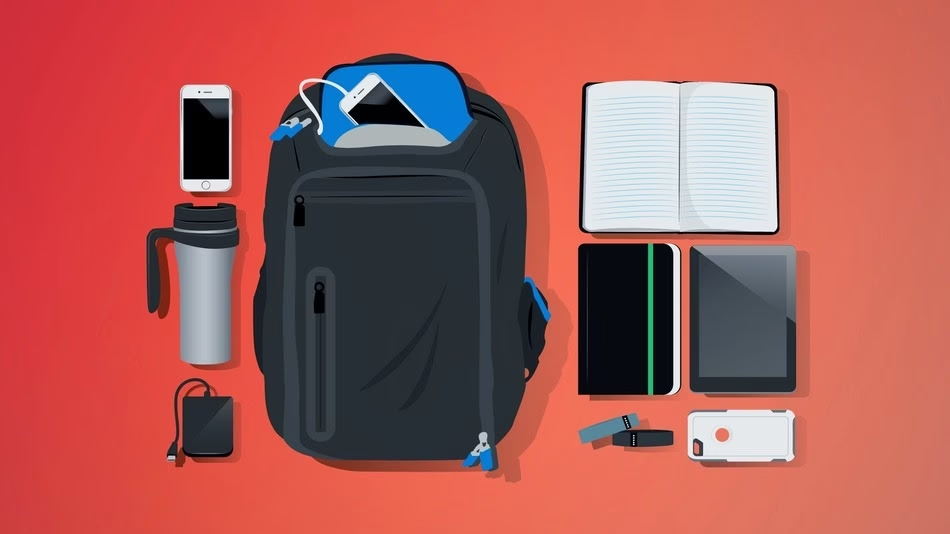Starting university or college in Kenya is an exciting chapter, full of new experiences, learning, and independence. However, it also comes with its fair share of expenses – tuition fees, accommodation, food, and textbooks can quickly add up. In today’s digital age, gadgets are no longer luxuries but essential tools for academic success and staying connected. The good news? You don’t need to break the bank to equip yourself.
At Retail Place, we understand the financial realities facing many Kenyan students. This comprehensive guide will walk you through the essential gadgets for college students on a budget in Kenya, focusing on smart, affordable tech that delivers maximum value for your money. We’ll help you prioritize, making sure you get the tools you need without sacrificing your financial well-being.
1. The Mighty Laptop: Your Academic Workhorse
A reliable laptop is arguably the most crucial gadget for any university student. It’s your primary tool for research, writing assignments, attending online lectures, and collaborating on projects.
- Prioritize Functionality over Flash: You don’t need the latest high-end gaming laptop. Focus on models with sufficient RAM (8GB is a good starting point), a decent processor (Intel Core i3/i5 or AMD Ryzen 3/5 are usually adequate), and an SSD (Solid State Drive) for faster performance (128GB or 256GB is fine if complemented with cloud storage or an external drive).
- Consider Refurbished or Used: Many reputable electronics stores in Kenya offer quality refurbished laptops at significantly lower prices. Ensure they come with a warranty.
- Chromebooks (Budget-Friendly Option): If most of your work is web-based (Google Docs, online research), a Chromebook can be an ultra-affordable option. They are lightweight, have excellent battery life, and boot up quickly. However, they might not support specialized software required for certain courses (e.g., engineering, graphic design).
- Operating System: Windows laptops offer the widest software compatibility and typically more budget-friendly options than Macs.
2. Smartphone: More Than Just Calls
Your smartphone is your connection to the world, a portable library, and a quick research tool. While not solely a “college gadget,” having a functional smartphone is indispensable.
- Mid-Range is Optimal: You don’t need the latest flagship. Mid-range smartphones from brands like Infinix, Tecno, Samsung (A-series), Redmi, or Oppo offer excellent value for money in Kenya.
- Key Specs: Look for decent battery life, enough storage (64GB or 128GB is good, with expandable memory if possible), a clear display for reading, and a reliable camera for snapping lecture notes or assignments.
- Connectivity: Ensure it supports 4G for reliable internet access, which is crucial for online learning and communication.
3. Portable Power Bank: Stay Charged, Stay Productive
Power outages are a reality in Kenya, and long study sessions or commutes can drain your devices. A portable power bank is a lifesaver.
- Capacity Matters: Aim for a capacity of at least 10,000mAh for multiple phone charges, or 20,000mAh+ if you plan to charge tablets or even some smaller laptops.
- Fast Charging: Look for power banks with fast-charging capabilities (e.g., Power Delivery (PD) or Quick Charge) to quickly juice up your devices.
- Reliable Brands: Invest in reputable brands like Anker, Oraimo, or Xiaomi to ensure safety and durability.
4. Noise-Cancelling Headphones/Earbuds: Your Study Sanctuary
University campuses, dorms, or even your mtaa can be noisy. Good headphones are essential for focused study, online classes, and relaxing with music.
- Budget-Friendly ANC: While high-end noise-cancelling headphones can be pricey (like some Sony or Bose models), many affordable brands now offer decent Active Noise Cancellation (ANC) or excellent passive noise isolation.
- Wired vs. Wireless: Wired headphones are generally cheaper and offer better sound quality for the price, plus no battery worries. Wireless options provide freedom of movement, crucial for commuting or gym use.
- In-Ear vs. Over-Ear: In-ear earbuds (like Oraimo FreePods, JBL Go series) are highly portable. Over-ear headphones often offer better passive noise isolation and comfort for long study sessions.
5. External Hard Drive or SSD: Backup Your Brain
Losing your assignments, research, or notes due to a computer crash is every student’s nightmare. A reliable external storage device is a must-have for backups.
- HDD (Hard Disk Drive) vs. SSD (Solid State Drive): HDDs are cheaper per gigabyte and suitable for mass storage. SSDs are faster, more durable (no moving parts), and more compact, but more expensive. For students on a budget, an HDD is usually sufficient.
- Capacity: 1TB (Terabyte) is a good starting point, offering ample space for documents, presentations, and even media files.
- Cloud Storage (Supplemental): While an external drive offers local backup, always complement it with free cloud storage options like Google Drive, Microsoft OneDrive (often free with university accounts), or Dropbox for extra redundancy and accessibility.
6. Portable/Shared Printer: Save on Printing Costs
Printing can quickly add up, especially if you have numerous reports and assignments.
- Inkjet vs. Laser: Inkjet printers are cheaper upfront but ink cartridges can be expensive. Laser printers (monochrome) are more expensive initially but toner lasts longer and is cheaper per page, ideal for text-heavy documents.
- Consider a Multi-function (All-in-One): Many budget printers can also scan and copy, which is highly useful for digitizing notes or submitting physical documents.
- Shared Printer: If you live in a dorm or shared accommodation, consider pooling resources with housemates to buy a single, good-quality printer (like an Epson EcoTank or a budget HP DeskJet) and share the running costs. This is often the most cost-effective solution.
7. Essential Accessories & Software (Often Overlooked!)
Don’t forget the small but mighty items!
- Flash Drives/USB Sticks: Always handy for quick file transfers or sharing with group members. Get a few of varying sizes.
- Webcam (if not built-in): Essential for online classes, virtual group meetings, or connecting with family. Budget webcams are widely available.
- Surge Protector/Power Strip: Protects your valuable electronics from power fluctuations common in Kenya.
- Basic Software: Utilize free alternatives! Google Docs/Sheets/Slides (online), LibreOffice (offline), and free antivirus software are excellent choices that save you hundreds of shillings. Many universities also provide free access to Microsoft 365.
- Good Quality Backpack: A durable, comfortable backpack is essential for safely carrying all your gadgets and textbooks around campus.
Equipping yourself for college in Kenya doesn’t have to drain your finances. By focusing on these essential, budget-friendly gadgets and making smart choices, you can ensure you have the necessary tools to excel academically without financial stress. Prioritize, research, and look for value, and you’ll be well on your way to a successful and well-supported university journey.









